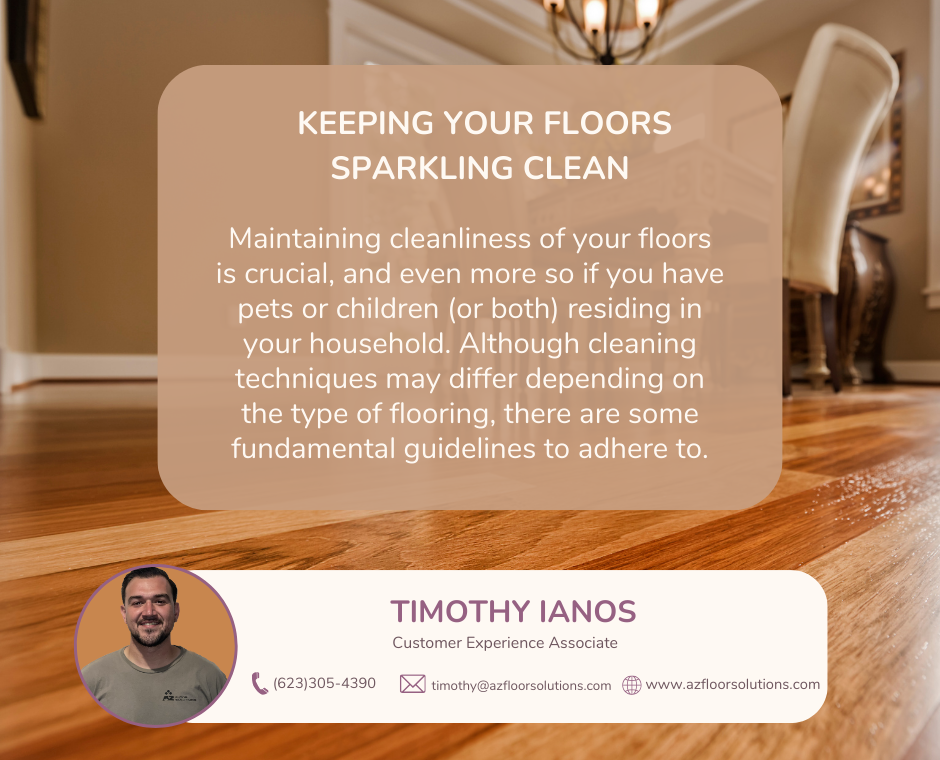- It is recommended to perform regular sweeping and vacuuming to maintain cleanliness.
Regularly sweep and vacuum your floors to maintain cleanliness and prolong their lifespan.
While deep cleaning is important, it is equally crucial to care for your floors daily and weekly. By removing dirt and dust regularly, you not only enhance the appearance of your floors but also promote a healthier environment. Make it a habit to sweep your floors regularly, especially when cooking, as the accumulation of food particles and debris can cause stains and damage over time.
Additionally, vacuum hard surfaces such as hardwood, laminate, and tile at least once a week, and increase the frequency to twice a week for rugs and carpets. The maintenance frequency directly affects the durability of your floors and carpets, as it determines how materials like wood, laminate, and various carpet fibers degrade.
2. Effective Mopping
Proper mopping is essential for maintaining clean floors, but if done incorrectly, it can cause more harm than good. Regardless of the floor type, it is important to avoid using excessive soap.
A couple of tablespoons per bucket of water is sufficient. Additionally, be cautious not to over-wet the mop as this can lead to warping. Regularly changing the water is also necessary to prevent leaving behind a dirty residue.
Here are some guidelines for mopping different types of floors:
Hardwood: Instead of using a bucket and water, opt for a microfiber mop or a steam mop specifically designed for wood flooring. Ensure that the mop is lightly dampened, not soaking wet. Avoid using DIY vinegar cleaning solutions or harsh detergents as they can damage the wood.
Linoleum: For cleaning laminate flooring, a damp microfiber mop is the best choice. You can use a floor cleaner or detergent solution with it. Vinyl: Use a gentle detergent when mopping vinyl floors. Avoid using a steam mop as it can cause bubbling or warping.
Laminate: Prevent over-wetting the mop when cleaning laminate flooring. Use dish soap and water, avoiding any products with polish or oil. Never use abrasive tools for mopping laminate floors.
Tile: To keep tile floors clean, use a rag or chamois mop instead of a sponge mop, as the latter can push dirt into the grout. A mixture of all-purpose cleaner or dish soap and water is recommended.
Stone: Ensure that your stone flooring is protected with a resin sealant to prevent staining. Mop-sealed stone floors with a pH-neutral cleaner.
For unsealed stone floors, use a microfiber mop and hot water. A steam cleaner can be effective for removing stains. It is important to follow these guidelines in a professional manner when mopping floors.
3. Keep the Dirt Outside
To maintain clean floors, it is highly recommended to prevent dirt from entering indoors. Install doormats at each entrance, if feasible, to encourage individuals to wipe their shoes.
Implementing a firm policy of wearing indoor shoes will significantly save you valuable time and prevent unnecessary distress.
4. It is imperative to utilize the appropriate cleaning solution and supplies when dealing with stains.
It is important to take precautions when dealing with spills on flooring, as certain liquids can cause damage.
It is recommended to promptly wipe up any spills and utilize cleaning products and spot treatments specifically formulated for your flooring type. In cases of deeply embedded dirt and stubborn stains, it is advisable to seek the assistance of a professional floor cleaning service.
To effectively address spills and stains on different types of flooring, it is essential to adhere to specific guidelines:
Carpet: It is crucial to avoid using stain-removing laundry products and instead opt for carpet cleaners.
Tile: A steam cleaner or a mixture of baking soda and vinegar can be effective in removing tough stains.
Stone Flooring: We recommend using a pH-neutral floor cleaner or steam cleaning.
Linoleum: Baking soda or rubbing alcohol can be utilized depending on the type of stain.
Hardwood Flooring: We recommend using a mild, pH-neutral soap mixed with water to avoid dulling the floors.
Laminate: Soap-based detergents should be avoided, but laminate stain removers and vinegar-based solutions are acceptable.
Vinyl Flooring: Baking soda and water can be effective in removing stains from acidic substances while rubbing alcohol is best for super-tough stains.
Having knowledge of maintaining cleanliness on your floors is essential, however, it is even more desirable to prevent the occurrence of dirt, stains, and scratches in the first instance.
In addition to regular upkeep, it is advisable to safeguard your flooring by utilizing rugs and mats in areas with high foot traffic. Furthermore, placing felt pads beneath furniture and trays beneath potted plants can provide an added layer of protection.
Lastly, when moving furniture, it is recommended to always employ a furniture slider.
Share This Article

